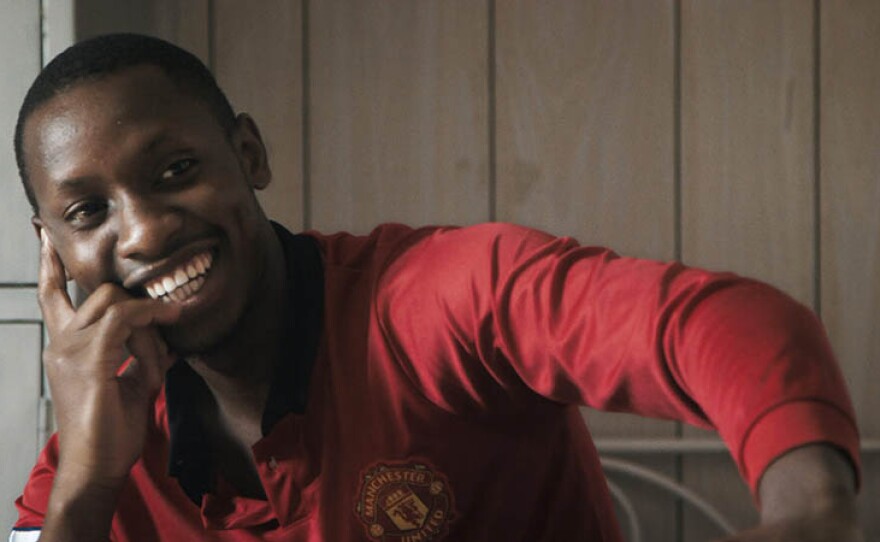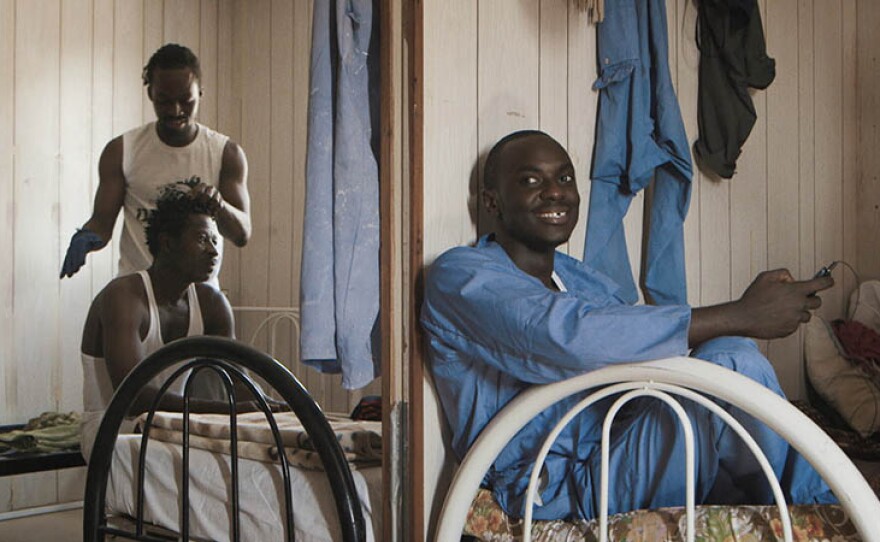—Film reveals the human sacrifice for “the beautiful game”—
For football fans across the globe, all roads lead to the 2018 FIFA World Cup, now taking place in Russia.
And while the thrill and excitement of the games ensue, “The Workers Cup” by Adam Sobel is set to premiere on the PBS documentary series POV on Monday, July 9, the day before the first game of the semifinals.
The film offers a glimpse of the massive stadiums and infrastructure projects now being built for the 2022 games in Qatar, while following the experiences of migrant workers who are recruited from Asia and Africa for the construction projects of local and multinational companies.
“This film tries to tell the story on a more intimate level and really comes close to the story... of the migrant workers themselves,” Sobel says in his filmmaker statement.
We learn of the circumstances that bring these workers to Qatar. Most come due to financial need and others in search of opportunity.
However, workers quickly find that their new reality is gravely different from what they expected.
“The life that I’m living here, I try to hide it from my friends back home because they wouldn’t understand it,” states Paul, a migrant from Kenya. “Their perception of being abroad is the high life... but the life that I’m living here, it’s a different life.”

For most workers, the choice to migrate brings little gain:
Most cannot change jobs, quit or return home without the permission of the company that contracted them.
Sometimes desperate measures are taken:
We learn of one worker who attacked his roommate so he would get kicked out of the camp and could go home.
A possible silver lining is presented when workers from 24 companies that are bidding for World Cup - related contracts are invited to participate in a sponsored football tournament called the Workers Cup. It takes place in the very facilities that they are tasked to build.
Sobel documents the experience of a team of workers selected by Gulf Contracting Company (GCC), with players from Kenya, Ghana, India and Nepal. The tournament quickly becomes an outlet for GCC workers and their excitement over it builds.
After the first game, they assess each other’s strengths and weaknesses and are motivated to ask for time off work so they can train for the next game. The team bonds across cultural and language barriers through their shared love of “the beautiful game.”
For some of them it represents a chance to be discovered by the scouts they hope will be watching. But for all it is a rare escape from the drudgery of their everyday jobs as sweepers, cleaners and diggers on sites across the city.
After each exciting game they head back to the labor camp, where they are reminded of the harsh realities they face: living at the mercy of their company, challenges to finding companionship and the struggle to maintain relationships with their families back home.
In a moment of reflection, they address the topic of freedom in relation to life at the camp.
“You can’t go back. You just have to stay and work for the... small salary,” states Paul during a conversation among team members contemplating whether they are subject to “modern slavery.”
“The Workers Cup” also presents the stark contrast between the workers’ living conditions and the opulence that surrounds them.
The unique and modern architecture of Qatar is built on the manpower of these migrant workers, who risk injury and death, yet will never be able to experience and enjoy the luxuries they provide:
“A mall is not a place people like me can go,” states Umesh, a migrant from India. “On our site we aren’t allowed downstairs in the mall while it’s open... There’s really no reason to go anyway.”
Ultimately, after the tournament is over, team GCC will return to “normal life” at the camp.
“It was never about the worker,” says Calton, a migrant worker from Kenya. “The company’s interest is to win tenders to construct stadiums, to construct buildings, to construct roads and all these things that are needed set up for the 2022 World Cup. It was for another person to see what’s going on, another shareholder. But I thought that maybe we’d be considered not as workers but as footballers. That was my goal.”

WATCH ON YOUR SCHEDULE:
This film will stream online on POV.org in concurrence with its broadcast. Full episodes of POV are available to view on demand for a limited time after broadcast.
JOIN THE CONVERSATION:
POV is on Facebook, Google +, and you can follow @povdocs on Twitter. #WorkersCupPBS
You can follow @workerscup on Twitter.
CREDITS:
Director is Adam Sobel. Producers: Ramzy Haddad and Rosie Garthwaite. Editors: Lauren Wellbrock, Anne Jünemann and Adam Sobel. Music by Nathan Halpern. Executive Producers for POV: Justine Nagan and Chris White. Produced by American Documentary, Inc., POV is public television’s premier showcase for nonfiction films.





